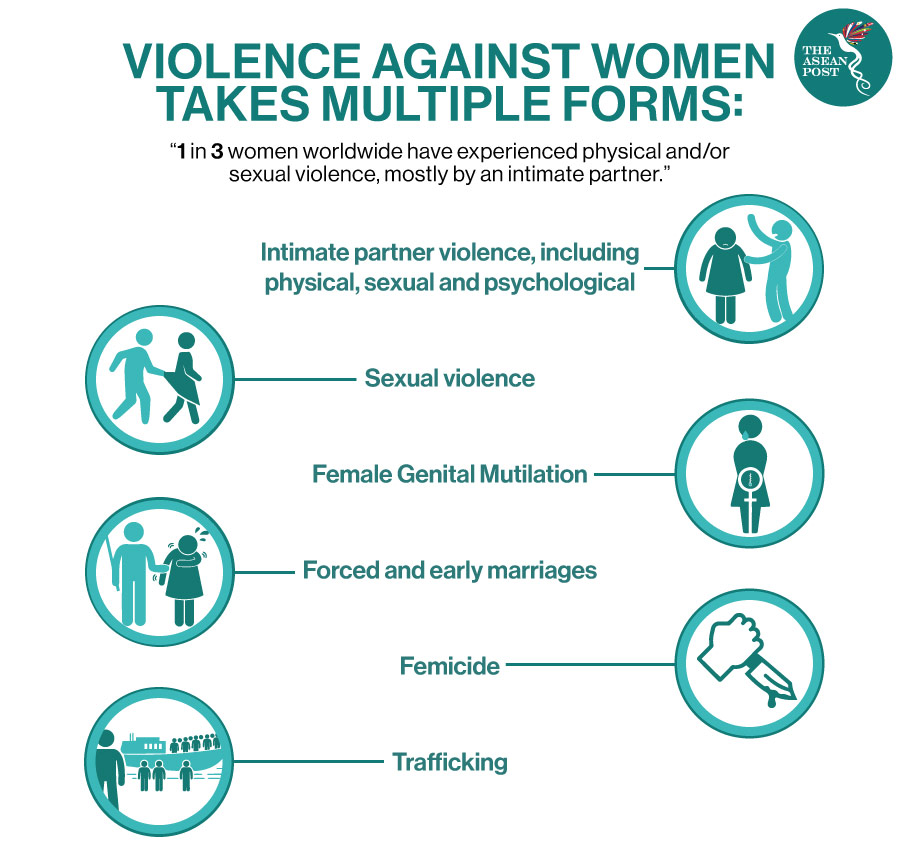Media headlines and stories of domestic abuse and violence against women are, unfortunately, common these days. The problem remains devastatingly pervasive and it starts alarmingly young, according to new data from the World Health Organization (WHO).
Globally, some 736 million women – that translates to a third of all women – have been subjected to physical or sexual violence across their lifetimes.
The WHO data published earlier this week also suggests that violence against women starts early. One in four young women aged 15 to 24 years old who have been in a relationship will have already experienced violence by an intimate partner by the time they reach their mid-twenties.
Before the COVID-19 pandemic, gender-based violence was already one of the most significant human rights violations. However, the coronavirus has certainly made a challenging situation even worse.

“Violence against women is endemic in every country and culture, causing harm to millions of women and their families, and has been exacerbated by the COVID-19 pandemic,” said Tedros Adhanom Ghebreyesus, Director-General of the WHO.
“But unlike COVID-19, violence against women cannot be stopped with a vaccine. We can only fight it with deep-rooted and sustained efforts from governments, communities, and individuals to change harmful attitudes, improve access to opportunities and services for women and girls, and foster healthy and mutually respectful relationships,” he continued.
Femicide
Violence against women takes multiple forms including intimate partner violence, verbal harassment, sexual violence, female genital mutilation, forced and early marriages, trafficking, and other forms of emotional abuse. At the far end of the spectrum is femicide – the murder of a woman.
Femicide is generally understood to involve the intentional murder of women because they are women, but broader definitions include any killings of women or girls. It is usually perpetrated by men, but sometimes female family members may be involved.
In a WHO report titled, “Understanding and Addressing Violence Against Women,” the agency noted that most cases of femicide are committed by partners or ex-partners, and involve ongoing abuse in the home, threats or intimidation, sexual violence, or situations where women have less power or fewer resources than their partner.
Just last week, police in northern India said that they have arrested a man who beheaded his 17-year-old daughter and carried her severed head to the village police station. He had attacked her with an axe in anger over her relationship with a man. This so-called murder in the name of ‘honour’ is one of the many types of femicide.
Whereas in ASEAN member state Malaysia, a number of intimate femicides was reported in just a span of a week. On 5 March, local media reported that a 43-year-old man admitted to shooting his wife in the abdomen using an air rifle while the victim was sleeping. Police said that investigations so far revealed that the motive behind the murder was jealousy as the couple was in the midst of a separation.
A few days later, a pregnant woman was murdered by her own husband in a gruesome incident at an oil palm plantation in the state of Sabah in East Malaysia. Preliminary investigations revealed that the motive for the incident stemmed from the fact that the suspect had found out that his wife had an affair.
To note, intimate femicide is murder committed by a current or former husband or boyfriend. A study by the WHO and the London School of Hygiene and Tropical Medicine shows that more than 35 percent of all murders involving women globally are reported to be committed by an intimate partner.
Rejection
In 2018, two separate cases in which young Thai men failed to get the reconciliations they desired and resorted to fatally shooting their ex-girlfriends before turning their guns on themselves, shocked Thai society.
The tragedies ended with the deaths of two young women and one perpetrator. This left Thais concerned about their youths’ response in the wake of rejection.
However, incidents like these are not unheard of in other countries. In 2019, a Cambodian man was charged with killing a woman because she rejected his advances. It was reported that the victim denied him because he was a drug addict. He allegedly ambushed the victim and hacked her head with a cleaver.
Some women have been raped, attacked with acid, beaten up, and burnt alive for rejection or saying “no” to men.
In India, rejection-induced violence is a serious problem.
According to an article published in Feminism In India, an award-winning intersectional feminist platform, “rejection is the deepest human fear as it triggers the deepest insecurities of a human being.”
“While a woman is trained to self-loathe and bear the embarrassment (of rejection) … the man is guided by his ego to snatch an acceptance,” states the article. Threatened by rejection, the “no” shakes his entitlement and he then relies on aggressive actions that he has learned.
“To address violence against women, there’s an urgent need to reduce the stigma around this issue, train health professionals to interview survivors with compassion, and dismantle the foundations of gender inequality,” said Claudia Garcia-Moreno of WHO.
“Interventions with adolescents and young people to foster gender equality and gender-equitable attitudes are also vital.”
Related Articles:
